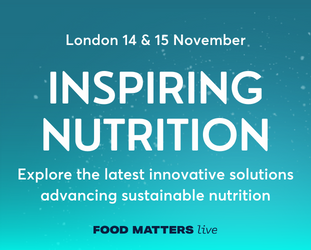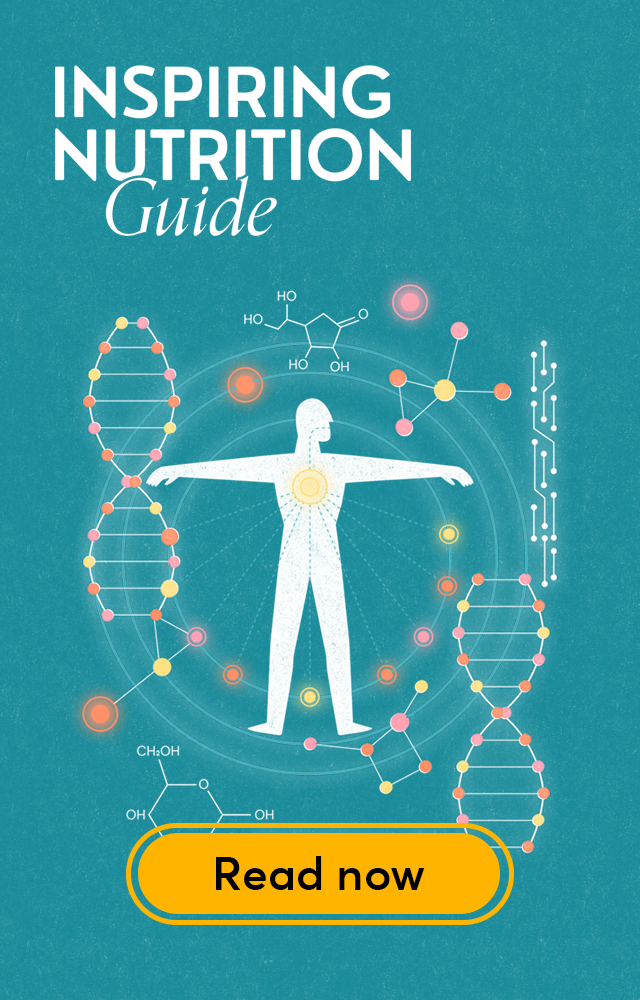In conversation with Qina CEO Mariette Abrahams: on artificial intelligence, health inequality and the future of precision nutrition

Is the term “personalised nutrition” abused?
I think “misunderstood” is probably a better term. Personalised nutrition is a dietary product or service that is rooted in science and where the outcome should be measurable.
We can see that despite numerous white papers and definitions, personalised nutrition continues to be associated with either genetic testing or putting a name label on a product…so we still have a lot of educating to do in this space.
Should there be more regulation in this space?
Whilst we are seeing regulators catch up with the industry in many areas, personalised nutrition sits at the intersection of several industries where more regulation is required and there’s not enough accountability at present.
An area where regulators are significantly lagging is on Artificial intelligence in the field of nutrition. Worryingly, there is little to no oversight into how personalised nutrition algorithms are developed. Without regulatory insight, we risk widening inequality gaps in healthcare as well as society at large.
At Qina, we believe the industry is at a critical inflection point. But currently, there are simply not enough industry voices bringing attention to the potential damage these rapid developments in AI can cause.
What role does Artificial Intelligence currently play in creating personalised diets?
For a start, it’s utilised to identify patterns and trends in a combination of data points such as wearables, digital scales, dietary intake, GPS, and sleep data.
“Whilst it’s not without risks, the integration and adoption of Artificial intelligence in personalised nutrition solutions has great potential.”
In turn, AI can use this data to match certain demographics with recommendations from scientific papers. Another way AI is used within personalised nutrition is to identify unique biomarkers in individuals, helping in the development of potential nutritional treatments and therapies.
How do you see AI shaping personalised nutrition going forward?
Whilst it’s not without risks, the integration and adoption of Artificial intelligence in Personalised nutrition solutions has great potential.
I believe AI can and will help to close health inequality gaps, allowing us to identify groups and individuals who would benefit from early nutritional interventions, signposting them to the health services and products that best match their budgets, preferences, nutrition literacy, and willingness to share data.
Generative AI will also enable us to provide real-time, personalised feedback to individuals without the need to continually log data.
What sort of questions should consumers be asking about personalised nutrition companies?
Having data is a good way to get inspired, but the advice given must be actionable, easy to understand and of course, rooted in the science.
For individuals who are looking for a more data-driven approach [to nutrition], you must first decide your health goals, preferences, and what data you are willing to share. I would recommend asking the following questions:
1. What is the science based on? What do they claim?
2. Who is behind the company? Are they credible?
3. What kind of support do they offer?
4. What do you need to do, take, or submit before receiving personalised advice?
5. How do they make the advice actionable?
To help consumers find the best personalised nutrition solutions, Qina has developed a score which ranks companies on factors such as their commitment to research, transparency, and sustainability.
How can brands maintain consumers’ data dignity whilst delivering a personalised, meaningful experience?
First and foremost, brands need to strictly abide by GDPR laws. To this end, every company needs to have a robust internal data strategy in place. This ensures that it is clear who is accountable and what data sources are being used.
On the other end, consumers need to have transparency in terms of how their data is being used, who has access and how they can download their data.
Companies also need to make sure that the systems they build are interoperable. It would be wise to partner with an experienced tech team who can ensure that platforms are secure and safe. As for delivering a meaningful digital experience, companies need to keep up with shifting consumer behaviours and trends.

















